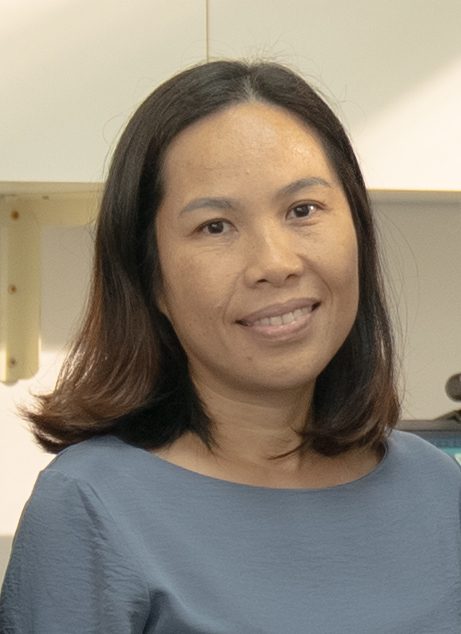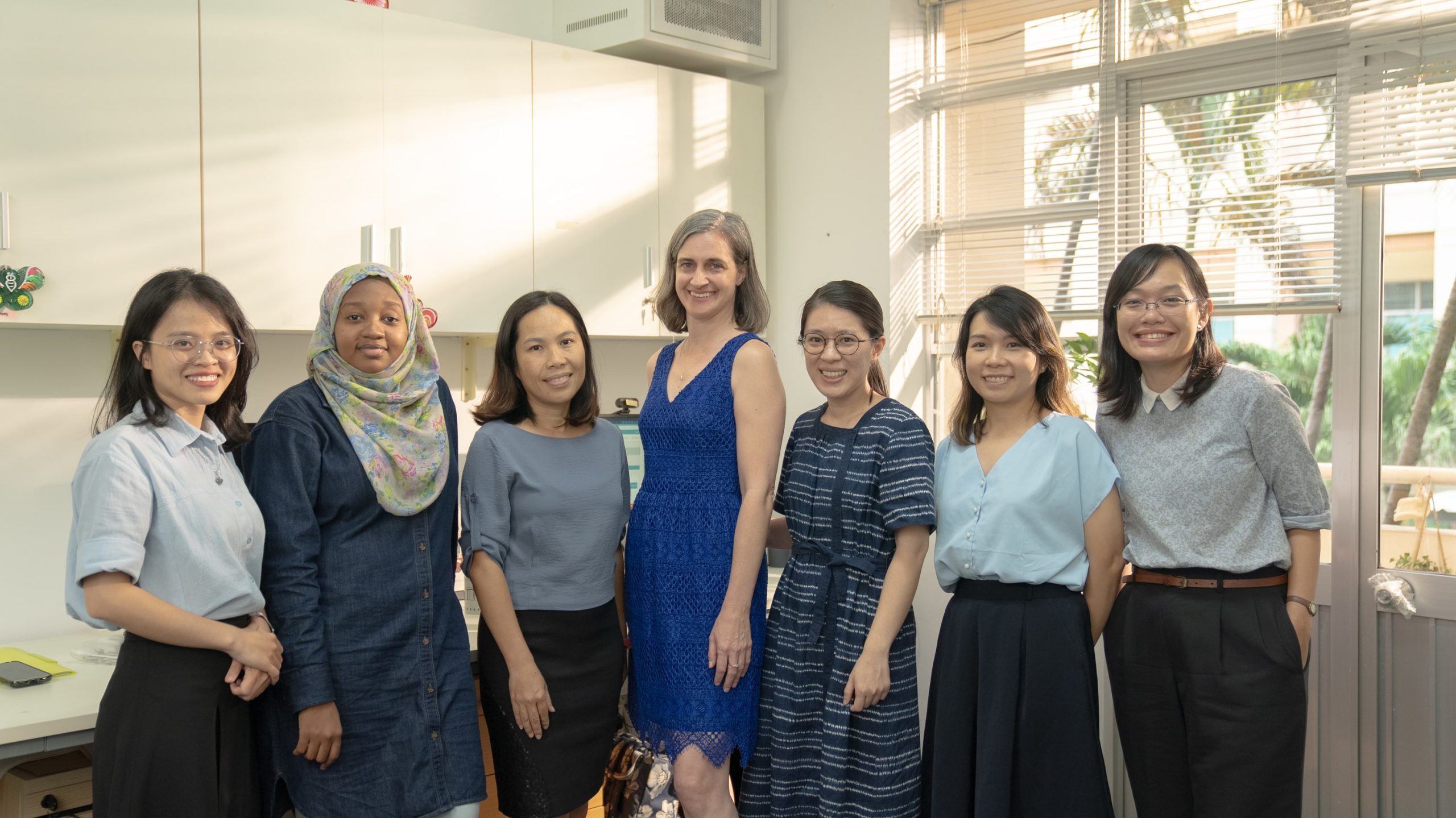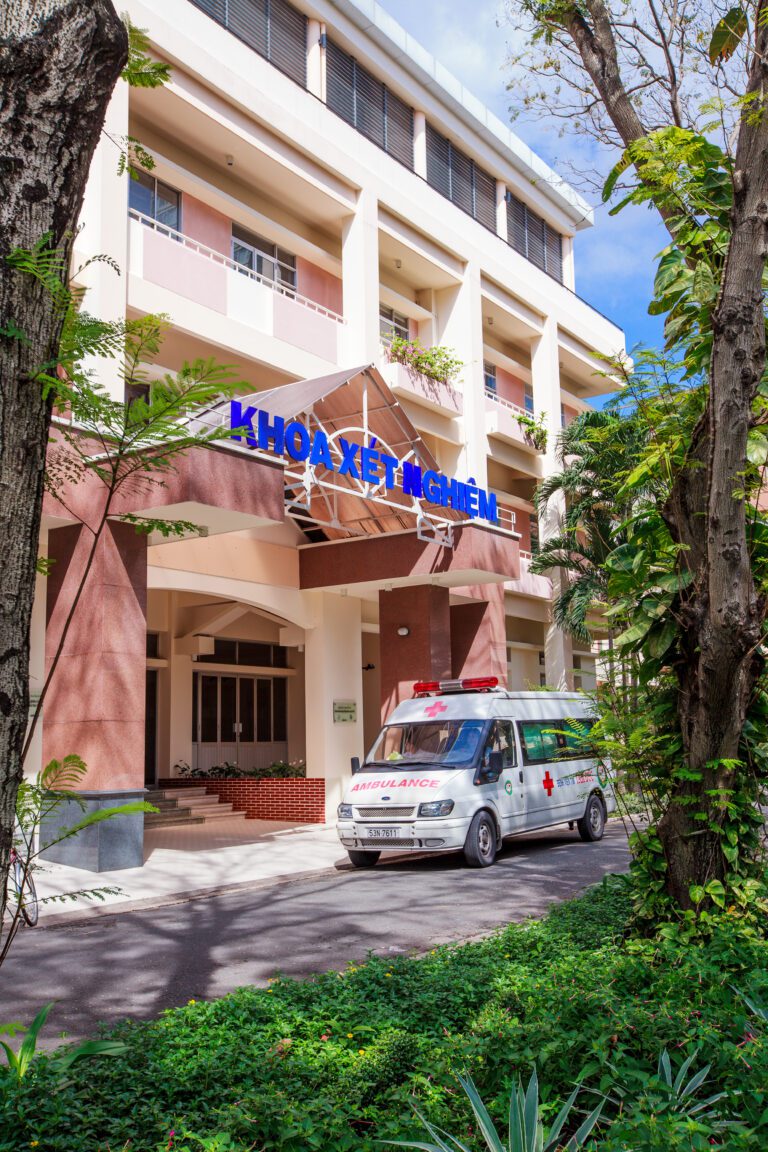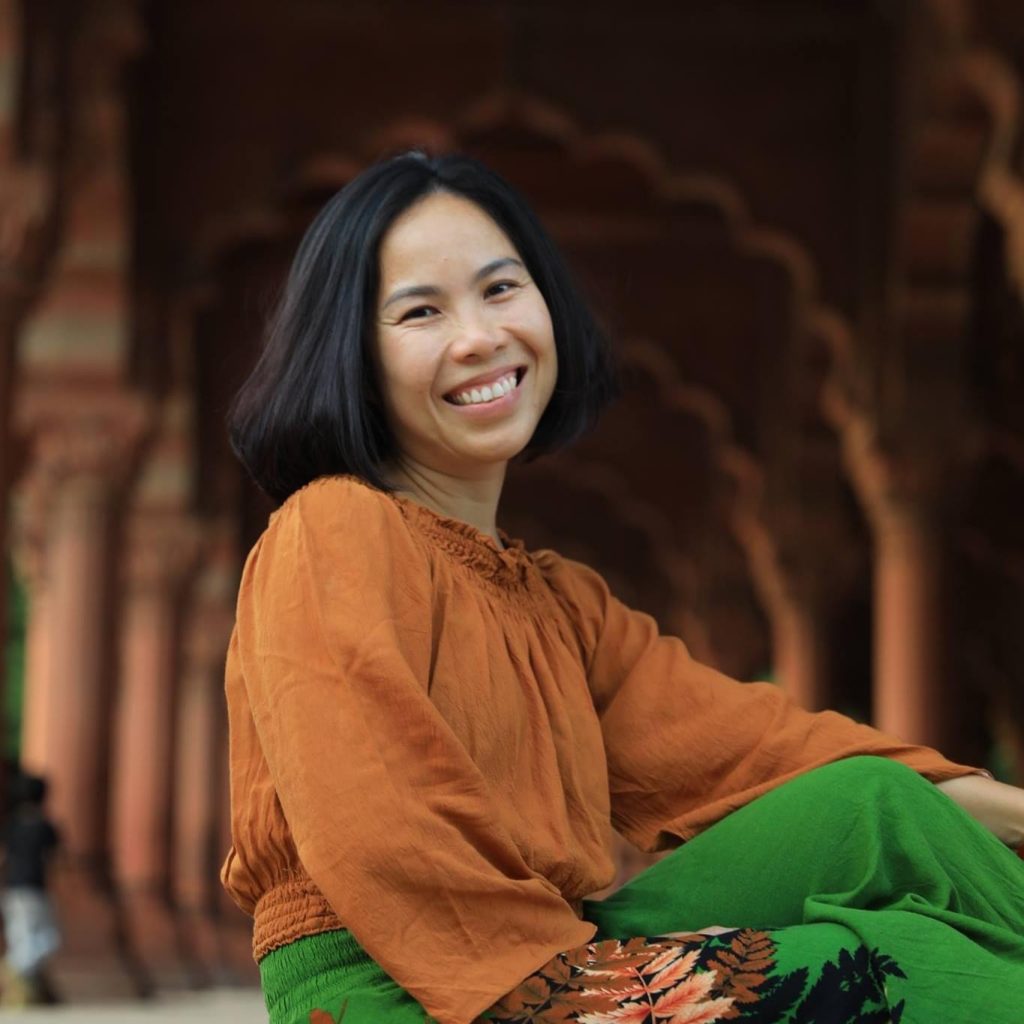
Your research on end-of-life care in Vietnam is relatively new. What inspired you to focus on this area?
My interest in end-of-life care stems from my experience working on the VITAL Project at OUCRU. This project focuses on technical innovation for intensive care units (ICUs) in Vietnamese hospitals.
The COVID-19 pandemic exposed critical gaps in Vietnam’s healthcare system, particularly in end-of-life care. Working in the ICU during this time, I witnessed firsthand the immense challenges faced by patients, families and healthcare providers as patients approached the end of their lives.
The emotional toll and lack of adequate resources deeply affected me, inspiring me to pursue research in this area.
How do cultural beliefs influence end-of-life decisions in Vietnam?
Vietnamese culture has distinct beliefs and practices around death and dying. One significant tradition is keeping loved ones at home as they are nearing the end. This is perceived as a “good death”, in contrast to passing away alone in the hospital. Even if it means travelling far or spending a lot, families will try to bring their loved ones home for their final moments.
Another thing is that many Vietnamese prefer a peaceful death without invasive interventions.
These beliefs can create challenges for healthcare providers who must balance the patient’s medical needs with their family’s cultural preferences.
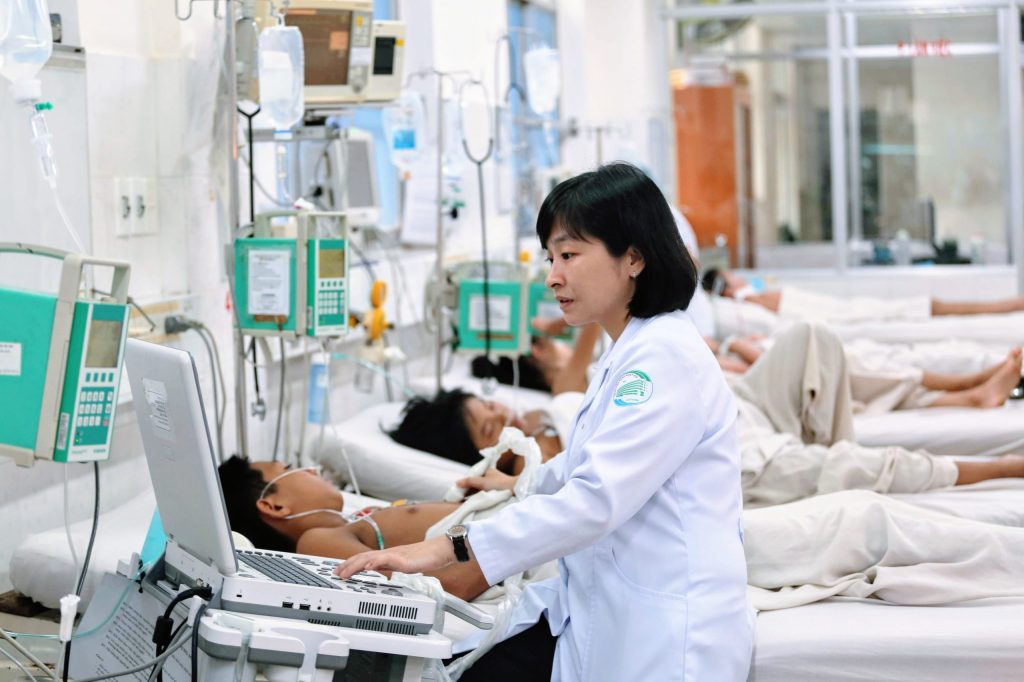
What are some of the most significant challenges faced by patients and families?
Patients and families often struggle with financial burdens, emotional distress, and decision-making related to end-of-life care. Even with health insurance, the costs of hospitalisation, medications, and specialised care at the ICUs can be expensive.
Families of very ill patients may face a difficult choice: extending costly treatments with uncertain outcomes or choosing palliative care, which focuses on comfort and quality of life.
If families choose to care for their loved ones at home, they also face financial barriers. Currently, there is no government support or insurance for home-based palliative care. Once a patient is discharged from the hospital, the family is responsible for all medical costs. This can make it difficult to decide whether to continue treatment or opt for palliative care.
What challenges do healthcare providers face in ICUs in Vietnam?
Healthcare providers in ICUs face a lot of challenges. They may not have enough resources or training to handle end-of-life care, and sometimes, cultural or religious differences can make things even more difficult.
Doctors might know a lot about medicine, but they lack the specialised knowledge in ethics required to guide patients through complex end-of-life decisions. In other countries, an ethical counsellor often works with doctors and patients to make these decisions together.
Caring for patients nearing the end of their lives can be emotionally taxing for frontline workers. The constant exposure to death and suffering, and limited support systems, have led to a surge in burnout and emotional distress among medical staff, especially during COVID-19.
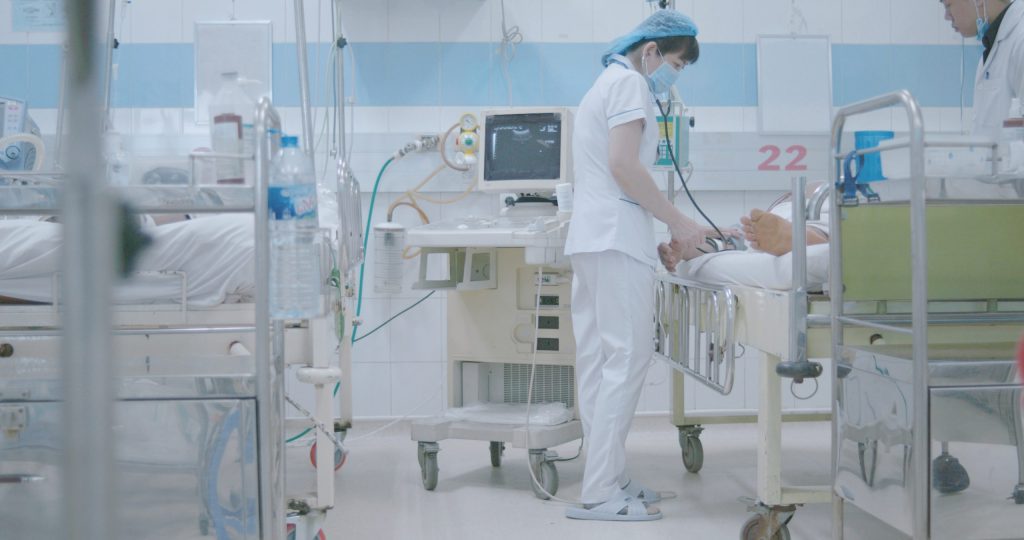
What are some of the potential solutions to address these challenges?
One thing we can do is advocate for policies that support home-based palliative care. This would make it easier for families to care for their loved ones in a comfortable and familiar setting, while also reducing financial burdens.
Another approach is to provide alternative services, such as hospice or community-based centres that offer professional palliative care. These centres can help patients manage symptoms, improve quality of life, and make informed decisions about their care.
Within the healthcare system, we can provide frontline workers with training in end-of-life care, including ethics and communication skills, to help them better navigate complex situations and provide compassionate care.
What role can research play in improving end-of-life care in Vietnam?
Research is vital for improving end-of-life care. As a relatively new field, there is a significant lack of research in this area. We need to learn more about the specific needs of patients and families to develop better programmes and policies to enhance their experience.
Furthermore, I believe that research can raise awareness of the importance of end-of-life care and encourage more compassionate and supportive approaches.
What are some of the challenges you’ve faced in conducting your research?
The taboo nature of death and dying in Vietnam makes data collection quite challenging. It can be difficult to discuss these topics openly with grieving families, especially those who have recently lost a loved one. Moreover, end-of-life care is quite new, so there is limited existing research or data to draw from.
However, I am quite ready to rise above these challenges. I have received guidance from my supervisor, who is an experienced medical anthropologist, to have a better approach to this matter. The Public and Community Engagement department at OUCRU has also expressed interest in this field, promising to foster stronger cross-departmental collaboration and potentially expand the scope of our research.
In the future, I envision that the application of affordable vital sign monitoring devices, developed by the VITAL Project, in home and community-based settings can enhance end-of-life care and collect better data.
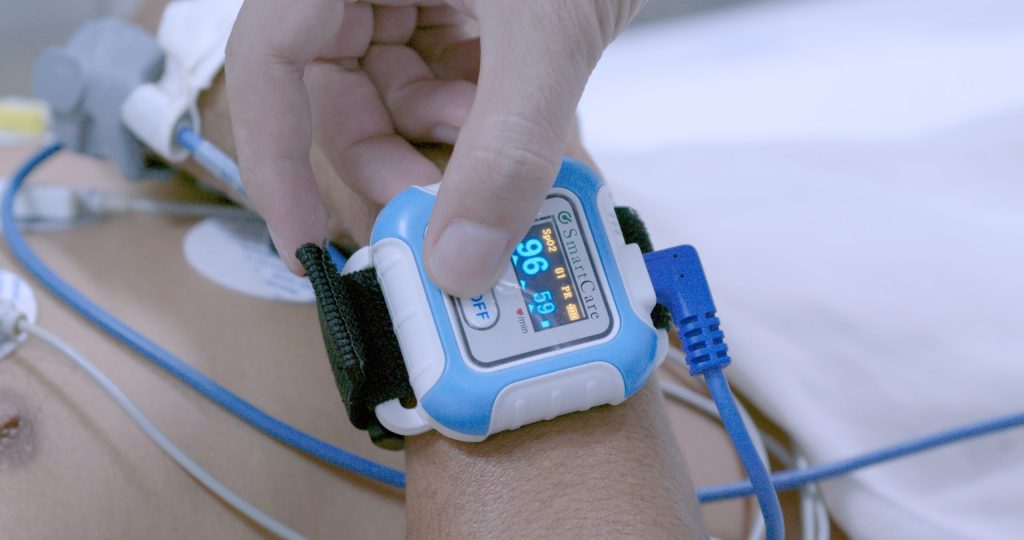
Have you observed any recent trends in societal perceptions of death in Vietnam?
Yes, there have been some notable changes. In urban areas, with more people living in apartments or renting houses, there is a growing trend of holding ceremonies in funeral parlours rather than at home. This is a departure from the traditional practice.
There is also a changing perception of death among young people. Death is no longer seen solely as a negative event. More people are becoming organ donors, which reflects a more positive outlook on death and a desire to contribute to society even after passing away.
What is your future in this area of research?
I am very passionate about improving end-of-life care in Vietnam. In October, I will start my PhD training at the University of Oxford under the OUCRU Prize Studentship. There, I seek to learn best practices for alternative care in Western settings, participate in professional networks and learn from leading experts in the field.
As part of my research, I aim to establish a pilot community-based centre for end-of-life care in Vietnam. This will help me gather more data about the costs and challenges of end-of-life care, providing valuable insights for evidence-based advocacy to improve the healthcare system.
By understanding challenges and opportunities, we can provide more informed care to patients and equip medical staff with the necessary skills to counsel patients and families effectively.
Luu Phuoc An is one of the outstanding researchers to receive the OUCRU Prize Studentship 2023 to pursue a doctoral programme at the Nuffield Department of Medicine, University of Oxford, United Kingdom.
Learn more about OUCRU PhD training programme: www.oucru.org/phd-programme




